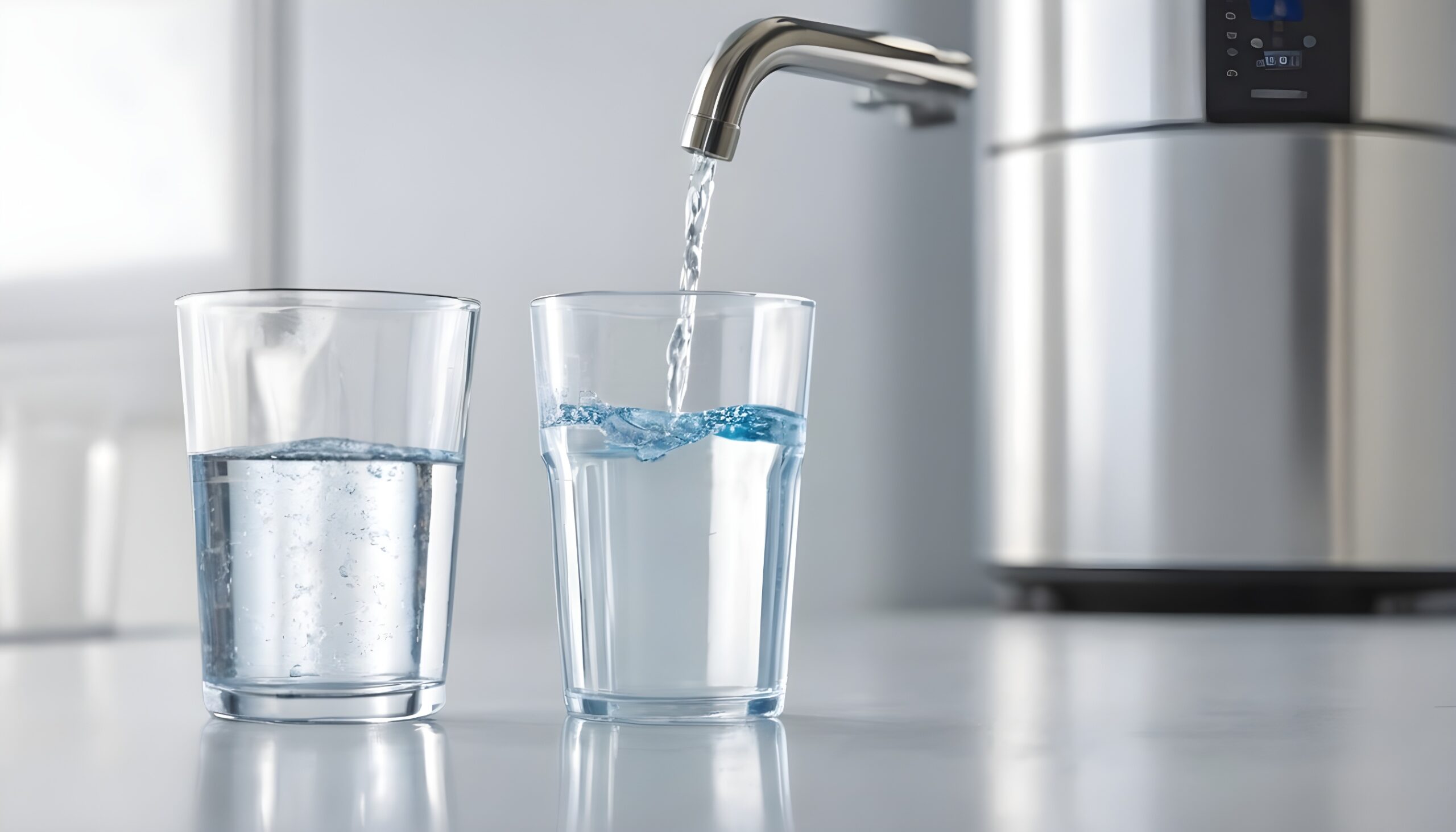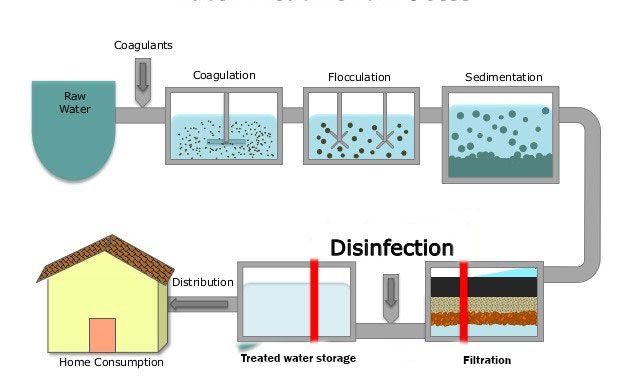Understanding the Benefits of Mounting a Water Purification System
Understanding the Benefits of Mounting a Water Purification System
Blog Article
Why a Water Purification System Is Important for Tidy, Safe Water
Accessibility to tidy, secure water is a fundamental human right and a foundation of public health and wellness. However, the presence of hazardous pollutants such as pathogens, hefty steels, and chemical pollutants in our water system increases severe problems concerning health and wellness. A water purification system stands as a vital remedy to minimize these dangers, ensuring that people and communities can access secure drinking water. Recognizing the ins and outs of these systems and their various techniques is essential, especially as we consider the effects for health and wellness outcomes and environmental sustainability in our daily lives.
Relevance of Tidy Water
Access to tidy water is a fundamental need for human wellness and wellness. It is crucial for sustaining life, supporting hygiene, and keeping total public health. Water Purification System. The accessibility of risk-free alcohol consumption water considerably reduces the risk of waterborne conditions, which pose a considerable risk to neighborhoods worldwide. Polluted water can bring about major health concerns, consisting of stomach ailments, cholera, and dysentery, specifically in vulnerable populations such as children and the senior.
Furthermore, tidy water is essential for cleanliness and hygiene methods, which are crucial in protecting against the spread of contagious conditions. Appropriate water supply sustains proper sanitation facilities, promoting a healthier setting. Furthermore, accessibility to safe water affects socioeconomic factors, as it allows areas to involve in commercial and agricultural activities, eventually adding to economic advancement.
In numerous areas, the absence of clean water aggravates destitution and inequality, further hindering progression toward lasting growth goals. Ensuring accessibility to tidy water is not only a public health critical however likewise a cornerstone for social equity and economic development. Initiatives to enhance water high quality and facilities have significant benefits, promoting much healthier neighborhoods and enhancing quality of life.

Typical Impurities in Water
Making certain the accessibility of tidy water is threatened by various impurities that can jeopardize its safety and top quality. The presence of virus, such as bacteria, viruses, and bloodsuckers, postures significant wellness threats, particularly in areas doing not have appropriate sanitation. These microorganisms can bring about waterborne illness, leading to extreme disease or also death.
Chemical impurities also present an essential worry. Hefty metals, consisting of lead, arsenic, and mercury, typically enter water products with commercial discharges or rusty plumbing. These substances can collect in the body gradually, leading to long-term health and wellness problems such as neurological damage and developmental disorders.
Furthermore, agricultural runoff introduces chemicals and plant foods right into water systems, which can interrupt environments and negatively effect human wellness. Nitrates, frequently discovered in fertilizers, can trigger significant problems like methemoglobinemia, particularly in infants.
Benefits of Water Filtration Systems
Identifying the critical demand for risk-free alcohol consumption water, water purification systems supply a myriad of benefits that boost public health and ecological sustainability. Primarily, these systems effectively eliminate dangerous pollutants, consisting of microorganisms, viruses, heavy steels, and chemicals, ensuring that the water eaten is devoid of pollutants and microorganisms. This decrease in impurities significantly decreases the danger of waterborne diseases, advertising general community health.
Along with wellness benefits, water filtration systems add to environmental sustainability by decreasing dependence on bottled water, which typically produces excessive plastic waste. By this page making use of a purification system, households can lower their carbon impact and add to a much more lasting ecosystem. Moreover, these systems can boost the preference and smell of water, making it much more tasty for day-to-day consumption.

Various Kinds Of Filtration Methods

One common method is reverse osmosis, which uses a semi-permeable membrane layer to different water from dissolved solids and pollutants. This procedure effectively decreases pollutants, consisting of hefty steels and chemicals. An additional extensively utilized technique is ultraviolet (UV) disinfection, which employs UV light to reduce the effects of infections and germs, providing them harmless without using chemicals.
Triggered carbon filtration is an additional prominent approach, using carbon to adsorb natural compounds, chlorine, and undesirable odors, enhancing preference and odor high quality. Distillation, a process that involves boiling water and condensing the vapor, successfully gets rid of minerals and impurities however may call for even more energy compared to other approaches.
Ion exchange is commonly used to soften water by replacing calcium and magnesium ions with sodium or potassium ions. Each method has its benefits and limitations, making it vital to comprehend their capabilities and efficiency in addressing particular water high quality issues - Water Purification System. Eventually, choosing the appropriate purification technique is essential for making sure tidy and risk-free alcohol consumption water
Picking the Right System
Picking an appropriate water purification system calls for cautious consideration of various variables, consisting of the specific contaminants existing in the water, the volume of water needed, and the wanted purification approach. Initially, it is critical to conduct a water high quality examination to identify impurities such as microorganisms, hefty steels, or chemical toxins. This info my company will certainly guide you in choosing a system that effectively targets those certain impurities.
Next, analyze your home's everyday water usage to figure out the system's capability. Equipments are offered in numerous sizes, from point-of-use filters for drinking water to whole-house devices that purify all water entering your home.
Furthermore, take into consideration the filtration method that best fits your demands. Reverse osmosis is very reliable for getting rid of a vast range of contaminants, while UV filtration is superb for eliminating microorganisms.
Verdict
In verdict, the execution of water filtration systems is critical for making sure access to tidy and safe water. By understanding the value of clean water and the benefits of numerous purification approaches, neighborhoods can make educated decisions to safeguard their wellness and advertise socioeconomic security.
Acknowledging the essential demand for secure drinking water, water purification systems use a myriad of benefits that improve public wellness and ecological sustainability.In addition to health advantages, water filtration systems add to environmental sustainability by reducing dependence on bottled water, which frequently creates extreme plastic waste. Inevitably, the adoption of water purification systems is an aggressive step towards guaranteeing clean, risk-free water for future generations while guarding public health and the atmosphere.
Choosing an ideal water purification system requires careful factor to consider of different variables, including the specific pollutants existing in the water supply, the quantity of water required, and the desired filtration technique.In final thought, the look at here execution of water filtration systems is crucial for making sure accessibility to clean and secure water.
Report this page